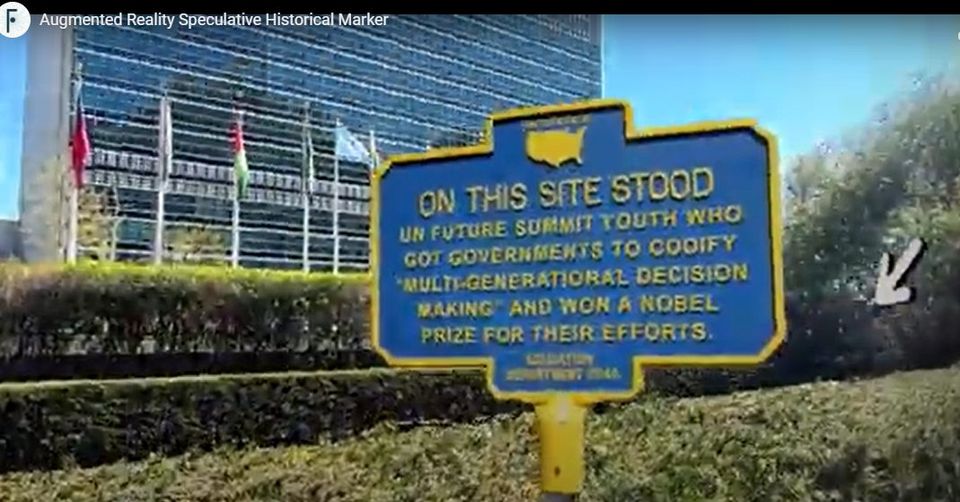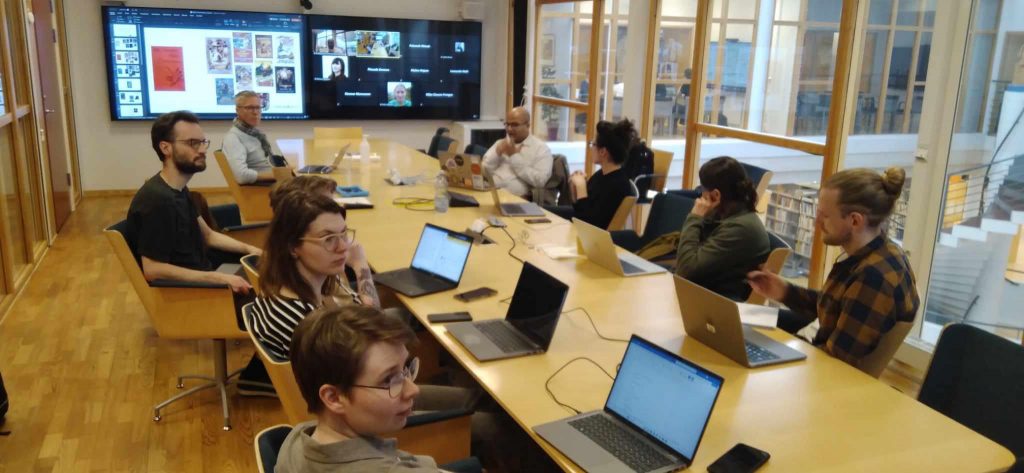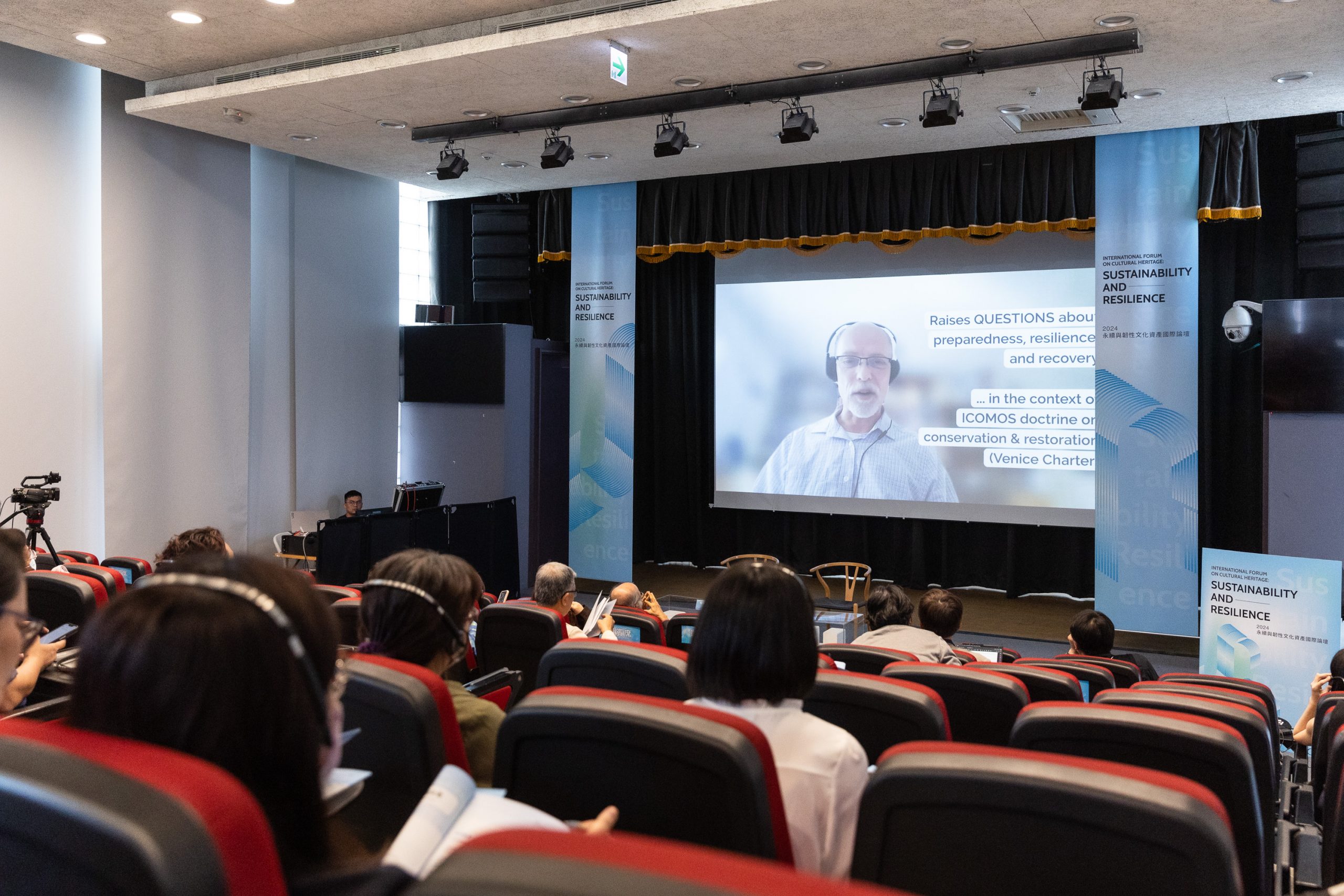Anders Högberg and Cornelius Holtorf taught a course entitled “Futures literacy for humanities research (4.5 hec)” for a group of PhD students in Global Humanities at Linnaeus University. The course provided the participating students with basic skills in analysing and understanding relationships between present and future societies in global perspectives and related to their own research (April-May 2024).
Anders Högberg was invited by Trelleborg Museums to talk about heritage and futures making processes. He met the entire staff and the new head of Trelleborg’s leisure and cultural administration (11 April).
Anders Högberg participated in the fourth plenary meeting of the Expert Group on Awareness Preservation after Repository Closure (EGAP) organised by the Nuclear Energy Agency (NEA) Radioactive Waste Management Committee. At the meeting, he presented on Futures Literacy and Heritage Processes. The meeting was held at the Federal Office for the Safety of Nuclear Waste Management (BASE) in Berlin (17-19 April 2024).
Cornelius Holtorf attended a lecture by Ele Carpenter (Umeå University, Sweden) entitled “Curating Nuclear Futures: Decolonising the Nuclear Anthropocene”, broadcast from the EU Joint Research Centre in Ispra, Italy (29 April 2024).
Cornelius Holtorf attended a lecture by Jun Mizukawa (Lake Forest College, USA) entitled “Upending 3.11 memorialization and monumentalization” discussing memorialization strategies of the 2011 East Japan disaster, arranged by Kathryn E. Goldfarb at the University of Colorado at Boulder (29 April 2024).
Cornelius Holtorf had an informal meeting with Benjamin Schraven, author of “Klimamigration” (2023), on the topic of culture and heritage in relation to “non-economic loss and damage”, “place attachment”, “immobility”, and “relocation/displacement” (7 May 2024).
Cornelius Holtorf gave a seminar on “Heritage Futures” for 12 students taking the MA course on Humanistic Theories in Materiality at the Saxo Institute, University of Copenhagen (10 May 2024).
Cornelius Holtorf presented a lecture on “Excavating the Future: From Recovery to Regeneration” for cirka 20 students and researchers at the Saxo Institute, University of Copenhagen, Denmark (10 May 2024).
Cornelius Holtorf attended a global UNESCO Chair Seminar on the planned UN Pact for the Future dedicated to the theme “Towards a Pact for the Future” (16 May 2024). Among others, various initiatives of UNESCO for building a culture of peace were emphasised.
On 16 May Anders Högberg and Ulrika Söderström organized the session “Heritage processes, urban transformation and sustainable futures making” at the conference Urban Transformations and Urban Histories at Malmö University, Sweden. https://sv-se.eu.invajo.com/event/fakultetkulturochsamhalle/stadensomvandlingarochurbanahistorierurbantransformationsandurbanhistories
Cornelius Holtorf presented an invited keynote lecture on “why culture and cultural heritage must serve peace instead of war, especially in times of crisis” for more than 50 participants at the Kalmar County Regional Conference on Cultural Policy held in Gamleby, Sweden (23 May 2024).
Anders Högberg, Cornelius Holtorf, and Gustav Wollentz contributed to a panel discussion co-organized by Cornelius Holtorf and Alison Heritage (ICCROM) on “Addressing the Future in the Social and Human Sciences” at the conference The Discovery of the Future in the Social and Human Sciences held at the University of Trento, Italy (6 June 2024).
Cornelius Holtorf held an invited keynote lecture entitled “Towards an Archaeology of the Future—can futures and foresight be central to archaeology?” in front of 60+ participants in the conference The Discovery of the Future in the Social and Human Sciences held at the University of Trento, Italy (7 June 2024). The conference was organised by Roberto Poli, UNESCO Chair on Anticipatory Systems and attended by at least six additional UNESCO Chairs from Cyprus, Italy, Mexico, Netherlands, UK, and South Africa.
Cornelius Holtorf participated in the first Heritage Dialogues’ Webinar organised by the European Heritage Hub, themed ‘Cultural Heritage for an Inclusive and Democratic Europe’ and featuring among others Normunds Popens, Deputy Director-General, DG EAC, European Commission, Irina Bokova, Chair of the Democracy and Culture Foundation, and former Director-General of UNESCO, and Carlos Moedas, Mayor of Lisbon, who said that “the cultural heritage of the past has to be about the future” (11 June 2024).
Cornelius Holtorf presented the work of the UNESCO Chair on Heritage Futures for the Board of the Faculty of Arts and Humanities at Linnaeus University, Kalmar, Sweden (11 June 2024).
Cornelius Holtorf contributed to the UN Stakeholder Briefing on the Intergovernmental Process for the Declaration on Future Generations, facilitated by the Ambassadors to the UN of Jamaica and the Netherlands (12 June 2024). He agreed twith the need to make the Commitments more future-oriented and therefore suggested to start §21 with the phrase: “acknowledging the significance of cultural heritage for meeting the needs of future generations, e.g. by preserving cultural diversity, promoting global heritage, and fostering intercultural dialogue to ensure mutual understanding, trust and solidarity.”
Cornelius Holtorf took part in meetings of the Pledge Network, some of which chaired by Sophie Howe, former Future Generations Commissioner for Wales, 2016-2023, promoting strong references to future generations and their interests in the UN Summit of the Futures this September in New York (16 May 2024, 13 June 2024, 11 July 2024, 15 August 2024).
Cornelius Holtorf submitted feedback on the drafted Pact for the Future and Declaration on Future Generations to the Swedish Department of Foreign Affairs and the Permanent Mission of Sweden to the UN (14 June 2024).
Cornelius Holtorf had a meeting with Emmanuelle Robert, Unit for Cultural Policy and Intercultural Dialogue, UNESCO, on current issues concerning the role of culture in the Pact of the Future to be finalised at the UN Summit of the Future in New York in September 2024 (21 June 2024).
Cornelius Holtorf met informally with Marie-Laure Lavenir, Director General of the International Council on Monuments and Sites (ICOMOS), and Toshi Kono, former President of ICOMOS, in Paris (21 June 2024).
Cornelius Holtorf presented an invited World Archaeology Seminar on “Future Archaeology” for more than 30 participants at the Austrian Archaeological Institute, Vienna, Austria (26 June 2024).











[…] Chair on Heritage Futures « Culture, cultural heritage and COP26 […]
[…] mer på Unescoprofessurens blogg http://blogg.lnu.se/unesco/?p=1061 Besök Öland 2050! […]